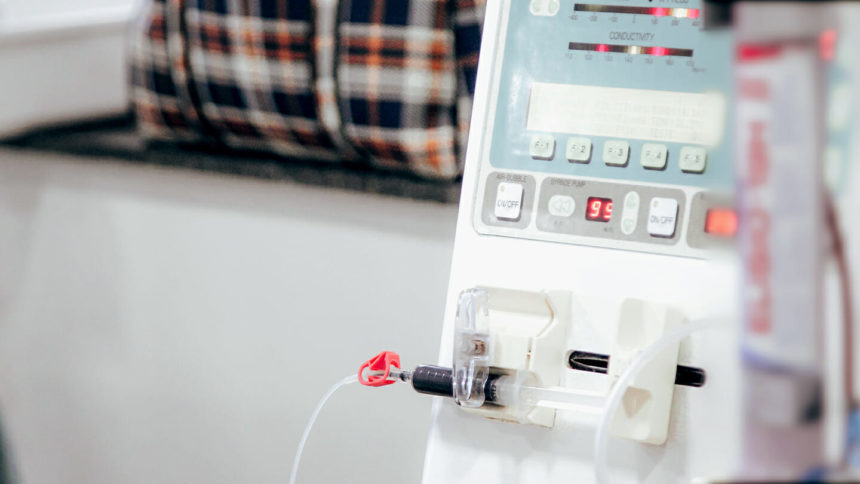
People with acute kidney injury who need outpatient dialysis after getting out of the hospital are often put on dialysis indefinitely — something that could put them at unnecessary risk for other problems,
Typically, people with end-stage kidney disease have to stay on dialysis indefinitely or get a new kidney. Even though those with acute kidney injuries have the potential to recover, those people can needlessly be put on dialysis indefinitely, too, according to the report. The study was released Thursday and is accepted in the Journal of the American Society of Nephrology.
“For those who have the potential to recover, remaining on dialysis may place them at unnecessary risk for heart disease, infection, organ damage and death,” Ian E. McCoy, MD, a doctor at UCSF Health and first author, said in a statement.
Less than a quarter of patients in a typical midsize dialysis center have an acute kidney injury — sudden kidney failure or kidney damage that comes on quickly.
In the study, researchers compared data from 1,754 patients with acute kidney injury and 6,197 patients with end-stage kidney disease. All of them received are at outpatient dialysis centers. Lab tests showed that people with acute kidney injury needed less dialysis, yet they were largely treated the same. Both groups got dialysis three times a week, and a majority of people in both groups were not tested for kidney functioning in the first month of treatment.
Among the acute kidney injury patients, 10% died during the three-month study period. The deaths were most likely from the conditions that prompted dialysis, the researchers said. Of the 41% of people whose kidneys recovered, about three-quarters stopped dialysis without any changes to the dose, frequency and duration. About a half of the patients didn’t die or stop dialysis by the end of the study. The data indicates that those people could have been weaned from treatment earlier, the researchers said.
“After about three months of dialysis, they almost always are treated like they will remain on dialysis indefinitely,” Chi-yuan Hsu, MD, senior author and chief of the UCSF Division of Nephrology, said.
“Doctors don’t seem to pay as much attention as they can to monitoring for early, subtle signs of recovery,” Hsu said. “We suspect many doctors stop dialysis only when the signs are blindingly obvious.”
People whose kidney function recovers but who stay on dialysis can face drops in blood pressure that can cause more kidney issues, the authors said.



